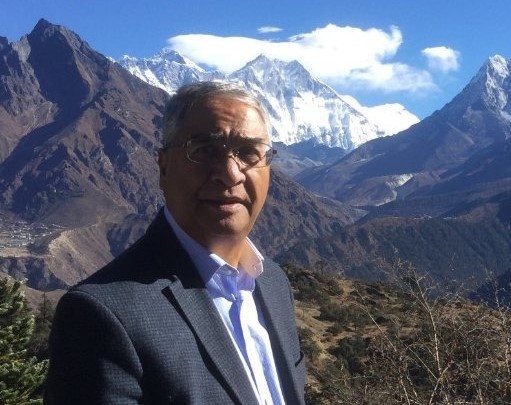The appointment of Sher Bahadur Deuba as Nepal’s Prime Minister once again, may be a turning point in Nepal’s recent history, which could, in the end, benefit India.
The arrival of Deuba center-stage mirrors a major overhaul in Nepal’s internal politics, where the Communists, empathetic to China in varying degrees, were in the driver’s seat. But the communist bastion has now cracked, opening the more liberal minded Nepali Congress, with a reinvigorated and stronger Deuba on top, to once again stage a comeback to power.
Why is Deuba the face of Nepal’s uncertain transition? For the simple reason that former Prime Minister KP Sharma Oli alienated the incumbent PM. “Deuba had a good working relationship with Oli, but the former Prime Minister, in his arrogance, refused to entertain Deuba’s requests for positioning his patrons in governmental organisations, including the constitutional commissions. It was only then that Deuba began to look at other political leaders as partners,” an insider told India Narrative.
The Nepal expert pointed out that Oli appears to have isolated himself as other Communist heavyweights, including former Prime Minister Madhav Nepal, a one-time ally, now opposes him. Similarly, the rift between Oli and Pushpa Kamal Dahal or Prachanda, once a comrade-in-arms, is too wide to be bridged. Within the Communist fortress, Oil heads the Communist Party of Nepal (Unified Marxist-Leninist), while Prachanda leads the Communist Party of Nepal (Maoist Center). Together with Madhav Nepal, the trio formed the Nepal Communist Party in 2018.
Despite bidding for power, how stable will be the recently appointed Deuba government? Seasoned Nepal watchers point out that the new government is unlikely to be stable for long. “Deuba is ideologically not in tune with the Communist line of thinking. He has a reasonably good working relationship with Madhav Nepal but has no personal chemistry with Prachanda. The rifts may surface sooner than later once portfolio allocations and filling- in of important posts begin,” a veteran analyst told India Narrative.
According to the insider, Deuba may have deliberately kept the size of his cabinet small, fully aware that the new government may not last very long, and fresh elections can be the silver bullet to keep him afloat. “As of now it appears that Deuba is inclined to go for early elections, especially as the communist camp is in disarray and its popularity among the common people is down. Besides, withing the Nepali congress Deuba’s leadership stands unrivalled,” the Nepal pulse reader said.
Observers point out that on account of his position as Prime Minister or caretaker Prime Minister, Deuba will be well-positioned to steer the polls in a favourable direction—an advantage he will lose out if sitting in the opposition.
The resurfacing, and possible resurgence of the Nepali congress is good news for India, whose prime interest is in ensuring that Chinese influence on Kathmandu is minimised. “The communists have party-to-party relations with the Chinese Communist Party, opening a deep channel of Beijing’s influence on them. Though the Chinese have also penetrated the Nepali congress, their influence on them is still superficial, which is good for India” a Nepal watcher said.
Deuba’s emergence would not have been possible without a surge of judicial activism in Nepal. Though the Chief Justice of Nepal’s supreme court Cholendra Shumsher Rana has been an Oli appointee, many on the constitutional bench, schooled in the tradition of western liberalism have been associated with Deuba in the past. “The judicial elite in Nepal has strong links with the West, especially European Union and have strongly imbibed western judicial traditions. Consequently, in reversing the Nepal President Bidya Devi Bhandari’s stance of going in for elections, the Supreme court went by the rule book and decided to give Deuba a chance who claims to have majority support of 334 members of parliament,” the insider said.
Also Read: Deuba's appointment as Nepal PM lifts spirits in India




















